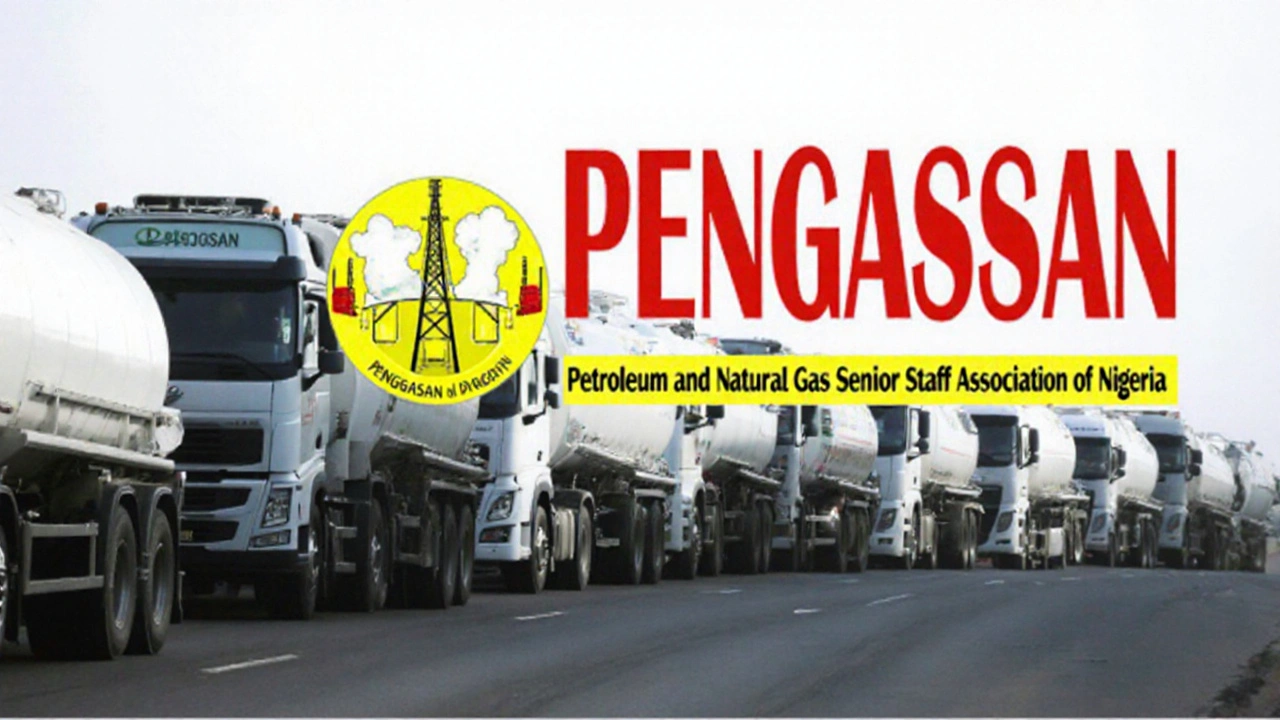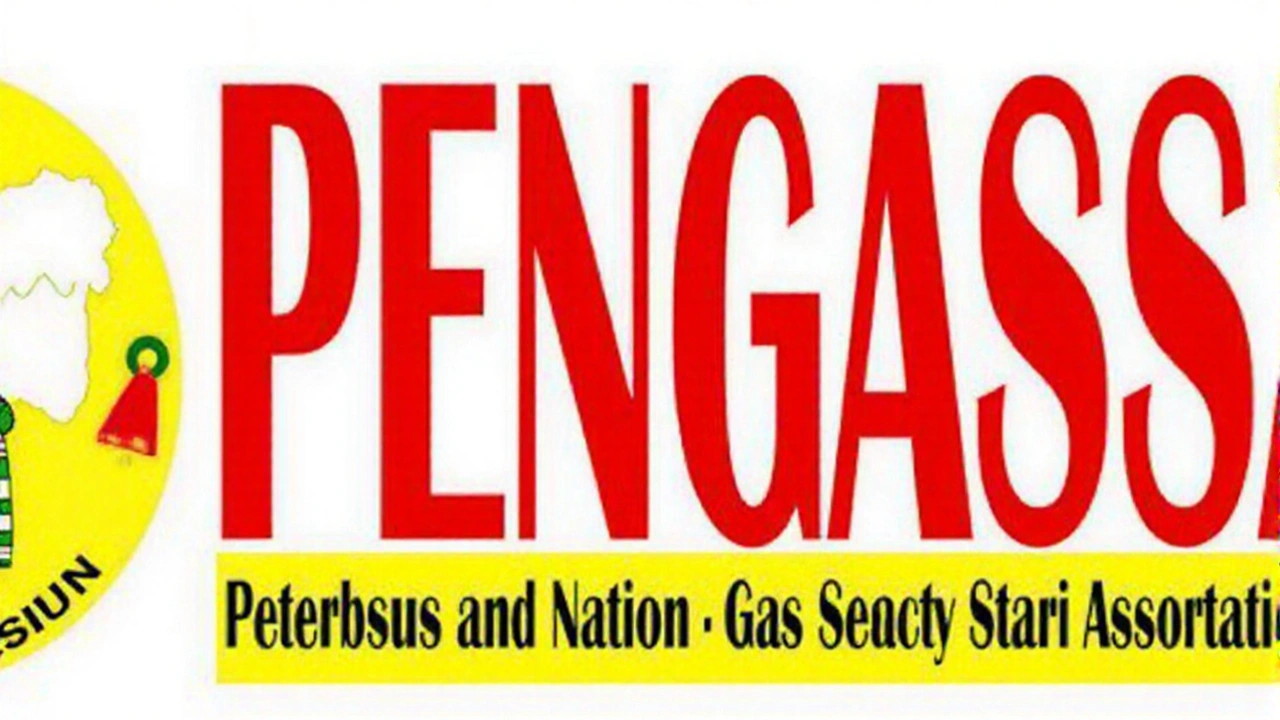Why the omission matters
When President Bola Tinubu gathered lawmakers to hand out national awards for participants in the June 12 struggle, the ceremony quickly turned into a flashpoint for labour unions. While the late Frank Ovie Kokori of NUPENG was posthumously bestowed a Commander of the Order of the Niger (CON), other oil‑and‑gas activists who risked imprisonment and the outright proscription of their union were nowhere to be seen on the honours list.
PENGASSAN’s national president, Comrade Festus Osifo, made it clear that the snub was not just an oversight but a symptom of a broader tendency to marginalise the role of trade unions in Nigeria’s democratic transition. He reminded the press that PENGASSAN itself was banned by the military in 1994 precisely because its members refused to abandon strikes that demanded the implementation of the June 12 mandate.
Osifo highlighted two comrades — Owodunni and Dabibi — who continued to press for democratic rights even as the Abacha regime intensified its crackdown. Their defiance, according to PENGASSAN, helped keep the spirit of the struggle alive inside the country’s most vital economic sector.

The broader political backdrop
The June 12, 1993 election, widely regarded as the freest in Nigeria’s history, was annulled by the military, sparking nationwide protests, strikes, and the formation of a coalition of civil society groups that eventually forced the return to civilian rule. While the narrative often centres on political figures like Moshood Abiola and cultural icons such as Wole Soyinka, the labour movement was on the front lines, organizing mass work stoppages that crippled the oil‑dependent economy and pressured the junta.
During the early 1990s, PENGASSAN and NUPENG coordinated nationwide oil‑field sit‑ins, effectively turning the country’s oil revenue into a bargaining chip for democracy. These actions resulted in severe retaliation: arrests, intimidation, and, in PENGASSAN’s case, an official ban that forced the union to operate underground for years.
In recent months, the government has made symbolic gestures to honour the June 12 legacy, naming streets after former activists and awarding national decorations. Yet the lack of representation for oil‑and‑gas labour leaders has ignited a fresh debate about historical memory and the politics of recognition.
Osifo’s demand is specific: the government should issue decorations that acknowledge the sacrifices of oil‑sector strike leaders, many of whom endured legal persecution and personal loss. He argued that doing so would not only redress an injustice but also reinforce the message that democracy in Nigeria was a collective effort, not the work of a few elite personalities.
The union also pointed out that other labour figures — such as former PENGASSAN vice‑president Ijioma “Owodunni”, and senior coordinator Dabibi — were instrumental in maintaining the strike momentum despite constant threats. Their contribution, according to the union, was on par with the high‑profile names that received awards.
- Comrade Owodunni — led oil‑field sit‑ins and refused to negotiate under military pressure.
- Comrade Dabibi — organized workers’ councils that coordinated nationwide protests.
- Other unnamed PENGASSAN cadres — faced detention, property seizure, and ostracism.
By naming these individuals, PENGASSAN hopes to shift the public discourse away from a hero‑centric view toward a more inclusive account of the struggle. The union’s call also resonates with a growing sentiment among younger Nigerians who are demanding that the nation’s history be told in full, rather than through a sanitized lens.
While the Tinubu administration has not yet responded publicly to PENGASSAN’s petition, the issue has already entered the parliamentary floor, with several lawmakers echoing the union’s concerns. If the government decides to expand the honours list, it could set a precedent for recognizing unsung heroes across other sectors, such as journalism, academia, and community activism.
The unfolding debate underscores a fundamental truth about democratic movements: lasting change is rarely the product of a single leader or institution. It is the cumulative effort of countless individuals, many of whom remain invisible in official narratives. For PENGASSAN, securing formal acknowledgement for its fallen and living comrades is more than a matter of badge or medal — it is about cementing their place in Nigeria’s democratic heritage.

18 Comments
Mitch Roberts
September 28 2025
Bro this is wild. They banned unions for striking but now they're handing out medals to politicians? The oil workers kept the lights off and the pressure on. No one remembers that anymore.
Deepti Chadda
September 28 2025
Why are we even talking about this? 🤷♀️ Nigeria has bigger problems like power and security. These guys got paid in blood and now they want a medal? 😒
Mark Venema
September 28 2025
This is a critical historical correction. The June 12 movement was not solely the domain of political elites or cultural figures. The oil workers’ coordinated strikes crippled the regime’s revenue stream - a strategic masterstroke. Their sacrifice was structural, not symbolic. Recognizing them isn't charity; it's historiographical justice.
Preeti Bathla
September 29 2025
Owodunni and Dabibi? Who even are these people? 🙄 I bet they just sat in a room and drank palm wine while the real heroes were out there risking everything. This is just union propaganda.
Zara Lawrence
September 29 2025
I’ve analyzed the pattern of state recognition in post-military Nigeria. The pattern is clear: only those who can be safely co-opted into the official narrative receive honors. The moment a group operates outside institutional channels - like unions - they are erased. This isn’t oversight. It’s systematic historical revisionism. The state fears collective memory because it empowers collective action.
Anjali Sati
October 1 2025
PENGASSAN always wanted attention. They were banned because they were reckless. Now they want to be saints? 🤨
Brian Walko
October 3 2025
Democracy doesn't belong to the podium. It belongs to the picket lines, the underground meetings, the midnight strikes. If we honor only the voices that speak in parliament and not the ones who shut down the oil fields, we're not remembering history - we're rewriting it for comfort.
Aayush ladha
October 4 2025
Actually, the military was right to ban them. Unions are just tools of foreign interests. Nigeria doesn't need outsiders telling us how to run our economy.
Rahul Rock
October 5 2025
There's a quiet truth here: revolutions are built by people who never get their names on monuments. The real heroes don't want medals - they just want to be seen. Maybe that’s the hardest thing to give them.
Annapurna Bhongir
October 6 2025
No one cares about oil workers. They just want money.
PRATIKHYA SWAIN
October 8 2025
Long live the workers 💪
Derrek Wortham
October 8 2025
Imagine if they gave out medals to every single person who ever went on strike in Nigeria. The entire country would be covered in ribbons. This isn’t about justice - it’s about performative virtue signaling by people who weren’t even born in '93.
MAYANK PRAKASH
October 10 2025
I was a kid in '93 but my dad worked in Port Harcourt. He told me about how they’d meet in the bush to plan strikes. No phones. No social media. Just trust. These people didn’t need applause. But they deserve it now.
Akash Mackwan
October 12 2025
This is why Nigeria is doomed. We keep elevating the wrong people. Who even are Owodunni and Dabibi? Never heard of them. Probably just got lucky. Meanwhile, the real patriots are in the army keeping order.
Amar Sirohi
October 13 2025
The paradox of democratic memory lies in its selective amnesia. We canonize the visible - the orators, the writers, the politicians - while the mechanics of resistance, the logistical backbone, the anonymous foot soldiers who risked everything without fanfare, are relegated to footnotes. This isn’t merely an oversight; it’s an epistemological violence. To erase the laborer from the narrative of liberation is to suggest that ideas alone can topple tyrants - a dangerous myth that privileges thought over flesh, rhetoric over resistance.
Nagesh Yerunkar
October 15 2025
I’ve studied this. The military didn’t ban PENGASSAN because they were brave. They banned them because they were *effective*. And now? The same people who benefited from their sacrifice are the ones deciding who gets a medal. 🤡 This is how power works. Don’t fall for the theater.
Daxesh Patel
October 17 2025
Wait, so if they banned PENGASSAN in '94, how come they still have records of Owodunni and Dabibi? Were they just kept in files? That seems kinda suspicious... maybe some of these names are made up?
Mark Venema
October 17 2025
The fact that you're questioning the existence of these individuals proves exactly why this recognition matters. Their names were buried not because they didn't exist - but because their existence challenges the myth that democracy was handed down from above. History isn't written by the powerful. It's written by those who refuse to be forgotten.